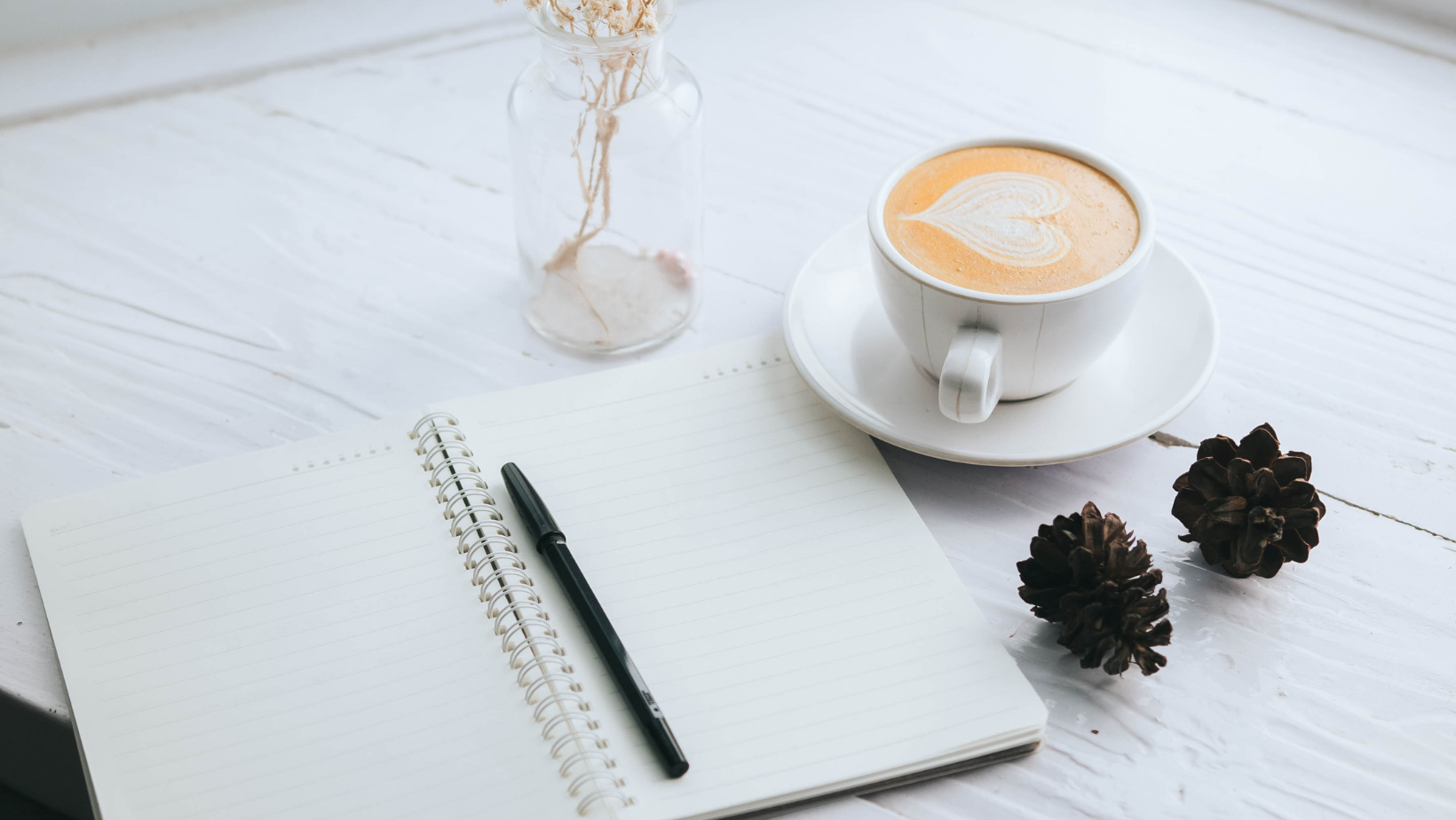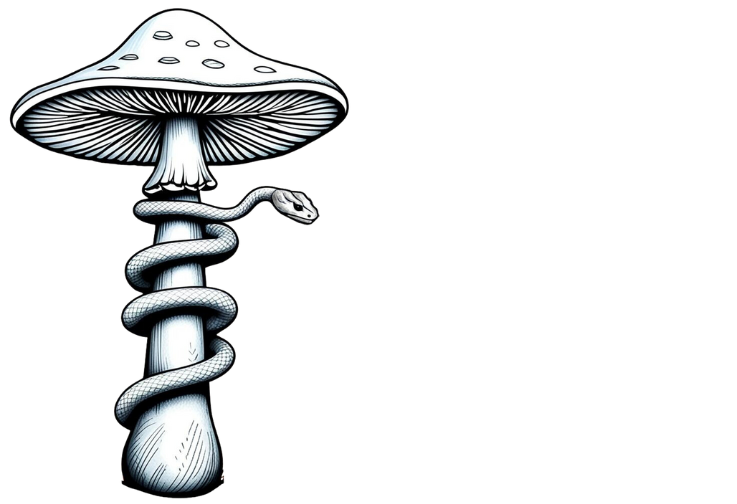How to start journaling for well-being: 7 tips & techniques
Jan 17, 2024
Did you know one of the most powerful self-improvement activities is at your fingertips?
Although it’s been about for thousands of years, journaling is presently having a moment in the limelight. Everyone is talking about the life-changing advantages of discovering how to journal.
Despite its recent popularity, this isn’t just a new-age self-help trend. If practised consistently, it can transform your mental fitness, emotional well-being, and even physical well-being.
Let’s explore the importance of journaling and how to weave this effective habit into your daily life.
What is journaling?
Journaling involves writing down your feelings and thoughts as you navigate everyday life. Journaling can assist you in understanding and working through your emotions, primarily when feeling sad or anxious. It can also support you in growing, becoming more self-aware, and gaining meaningful wisdom.
The magnificence of journaling is that there’s no right or wrong way to do it. It’s a profoundly personal experience that can take many formations.
One day, journaling could look like a diary entry. The next day, it can be a list of things that bring you happiness or a list of goals you want to accomplish. A journaling habit can assist you in working through your emotions, especially when feeling sad or anxious. It can also help you grow, become more self-aware, and attain meaningful understandings.
For these reasons, journaling is one of the perfect self-improvement tools. Unsurprisingly, some of the most successful people in the world, including Richard Branson, have kept journals throughout life.
5 types of journaling
Each person is diverse. You might want to use your journal to reflect on your behaviours, while your friend may want to keep track of their daily habits. Being precise about the purpose of your journal will aid in informing the type you decide to start keeping.
Here are five typical types of journaling to get you started:
1. Daily journaling
As the name indicates, this is a journal that you write in every day. The contents differ from other types of journaling, nevertheless, as you concentrate on sharing what you did and how you felt about it each day.
This type of journaling can be useful for people experiencing life changes or wanting to keep track of the duration of their life. It can also be useful to kick off when beginning a new job or career. A daily journal will be a great help to look back on to see how far you have grown. It can also be a reference if you feel life is moving too quickly.
2. Visual journaling
When most individuals think about starting a journal, they think of writing. However, visual journaling is primarily constructed of images. Each entry uses sketches to tell your story. These can be simple line drawings, comic strips, storyboards or stylized sketches. Experiment with other types of drawings to see which works best for you.
This type of journalism is useful for people who have difficulty expressing themselves with words or do not enjoy writing. You may find language limiting and prefer a more visual representation of your journal entries.
3. Stream of consciousness/free writing journaling
Many use free writing as a warm-up before leaping into their novel or other long-form text. But it can be a good tool for starting a journal, also. With stream-of-consciousness journaling, you write down reflections as they stream through your mind.
It can be challenging for your fingers to keep up with your brain, so don’t stress about your handwriting or spelling mistakes. The primary objective is to get the bulk of your conscious thoughts out so you can excavate your perspectives and deeper ideas. You can start this type of journal with an intention or hop in and see where it takes you.
4. Gratitude journaling
Studies show that gratitude is connected to happiness. Developing gratitude and a strong gratitude practice strengthens relationships and develops greater strength in individuals. So, writing a gratitude journal can be positively beneficial. Adding bullet points for people or things you are thankful for to your existing journal practice has benefits.
You can structure your gratitude journal in various ways. You can list the things you are grateful for, incorporate them into a bigger entry, or format them as short thank-you notes. You can then choose to share them with others or keep them private
5. Bullet journaling
You may have noticed a bullet journal and wondered how to use one. Rather than lines, they have evenly spaced dots to guide your entries. Bullet journals are customizable. They can track everything from your daily steps to your mood. Or you can use one page as an intention with bullets for reflections like “one thing that made my day today” or “my intention for today.” You can also get creative with various colours and mediums to design your journal entries how you like.

Benefits of journaling
While writing things down appears simple enough, the outcomes are powerful. Here are just some of the advantages of keeping a journal.
1. Improves mental well-being
The pandemic has brought outstanding tension and uncertainty into our lives.
During this period, 4 out of 10 grown-ups in the United States have experienced symptoms of depression and anxiety.
One way to deal with intense emotions and tension during challenging times is to find a healthy outlet through a journal. Journaling is verified to have a positive impact on mental health and decrease the effects of depression and anxiety.
2. Strengthens recovery time and the immune system
You probably heard, “An apple a day keeps the doctor away.” Well, it turns out journaling has the same effect.
In a 2018 Cambridge study, people were asked to write about their most in-depth feelings and thoughts surrounding the most stressful or upsetting events.
After Four months, those who wrote about their experiences for 15 minutes a day noted fewer doctor visits and sick days.
Not only is journaling related to long-term reductions in health problems, but it also supports you heal faster. Another study found that expressive writing enabled speed up wound healing in more aged grown-ups.
3. Express gratitude
One of the best ways to express appreciation is by keeping a gratitude journal and noting things you are thankful for. Gratitude is confirmed to trigger areas of the brain that are linked to positive emotions.
Feeling grateful also overpowers negative emotions, makes you more compassionate and boosts optimism.
4. Helps you work through challenges
Journaling is verified to help people heal challenging experiences and past wounds. A recent University study asked participants who experienced a recent traumatic event to experience a six-week writing ‘intervention.’ This consisted of diverse writing prompts, including poetic, expressive, transactional, and mindful journaling.
The study found that writing boosted participants’ stability and lowered stress.
5. Helps you set and accomplish goals
One of the most practical ways to achieve your dreams is to write them down.
Setting your goals on paper helps you envision them more clearly. Visualization is a strong method used by elite athletes and CEOs. It involves imagining that what you desire to achieve is already yours.
In 2020, Dr. Gail M from the University of California found that people who write down their dreams have a higher chance of accomplishing them when compared to those who don’t.
The importance of journaling
The only way to reap all the prizes of journaling is to be consistent. This implies making journal entries a daily habit rather than an occasional hobby.
Writing every day is a strong way to do inner work. It can lead to wisdom and breakthroughs and help you process difficult emotions and situations.
Learning to write a journal is also a fantastic mindfulness practice because it allows you to focus on the present moment. Being present without worrying about the past or future is a soothing and peaceful sensation that relaxes the body and mind.
The calming results of daily journaling also help treat emotional fatigue. Incorporating 20 minutes of journaling into your evening routine can help you offload heavy feelings of stress before bed.
What to write in a journal
This is a unique decision, and it can change over time. You might start your journal to clarify what profession you want and then adapt it to include a goal system.
Here are some ideas to get you considering about how you might want to use your own journal and what to write in it:
- What you are grateful for
- Personal or career goals
- Quotes that inspire or motivate you
- A long-term vision of where you want to be
- Questions you hope to answer at a later date
- Reflections or revelations
- Compliments to yourself
- Things you want to improve
- Your activities and what you’ve done and experienced
- What you eat in a day and how you feel afterwards
- Blockers or frustrations you’re struggling to overcome
How to start journaling and make it a routine
Starting a journal can seem scary at first. Like any other habit, it takes time to become a habitual part of your lifestyle.
Here are some tips on journaling to help you start and keep a successful journal.
1. Discover the journaling techniques that work for you
Many favour keeping a paperback journal because it helps them evolve and express ideas more clearly. But putting pen to paper is not the only way to journal.
When you start writing, finding the best form for you is important.
You may find that the ease of using a mobile or laptop makes journaling more pleasant for you. You also don’t have to limit yourself to one form.
Say you prefer handwriting, but you get motivation during your morning travel. In that case, you can use apps such as notes on your phone to jot down your thoughts before you forget them.
2. Let go of judgments
There is no right or wrong way to journal. Practising self-compassion and leaving your inner critic at the door is important when writing. Journaling is a judgment-free zone.
Don’t worry about things like spelling or grammar. You’re writing for your eyes only, not for an audience.
When you are self-critical or fearful someone might read your journal, you tend to censor yourself and be slightly honest and authentic.
3. Keep expectations realistic
Don’t expect to write many pages filled with insightful thoughts when you first begin journaling.
Having unrealistic expectations can prevent you from continuing your journaling routine because you don’t immediately see progress.
Like any other practice, you must set realistic objectives and take baby steps to see results.
4. Create a writing routine
It’s easy to write when you feel motivated and inspired. But what about when you’re not?
Developing a writing routine and preparing journaling time can help you stay on track, even when you feel uninspired.
You can set time aside before breakfast or every evening before bed, even for five to ten minutes. This time-blocking technique allows you to prioritize and incorporate journaling into your schedule.

5. Journal about things that come to mind
Regarding what you want to write about, the possibilities are limitless. You can write about your day, thoughts and emotions, or something that inspired you.
You can also discharge heavy emotions like frustration, anger, or sadness. Placing these feelings on paper can free you from having them in your mind.
Every day after you wake up, open your journal and start writing two to three pages filled with any thoughts that come to mind.
This stream-of-consciousness writing is very therapeutic for those who have tried it. It’s assisted them in processing emotions, gaining clarity, and unlocking their creative side.
Use journal prompts
There will be moments when you’re staring at your journal and considering, “What should I write in my journal?”
There are numerous journaling prompts online that can assist you in overcoming your writer’s block. Here is a list of things to journal about on the days you feel blocked:
- A recent situation that challenged you
- A list of things and people you’re grateful for
- Small things that bring you joy throughout the day
- An (unsent) letter to someone in your life
- The best decision you’ve ever made
- Daily positive affirmations
Get creative
Do not be fearful to express yourself, and be creative. It can be sketching, poetry, lyrics, art, or anything else that lets you express yourself.
How beginners can keep the habit
Learning how to begin journaling is an effortless part. It’s creating a daily ritual that takes self-discipline.
But nobody said creating good habits happens overnight.
If you stick to it, you’ll see the positive results of journaling manifest in your private and professional life. Utilize it as a tool for personal development, relaxation, self-discovery, or visualization. There is no right or wrong route to journal. Make it your own, as this leads to a positive life.
Stay connected with news and updates!
Join our community emails to receive the latest news and updates from our team.
Don't worry, your information will not be shared.
We hate SPAM. We will never sell your information, for any reason.

